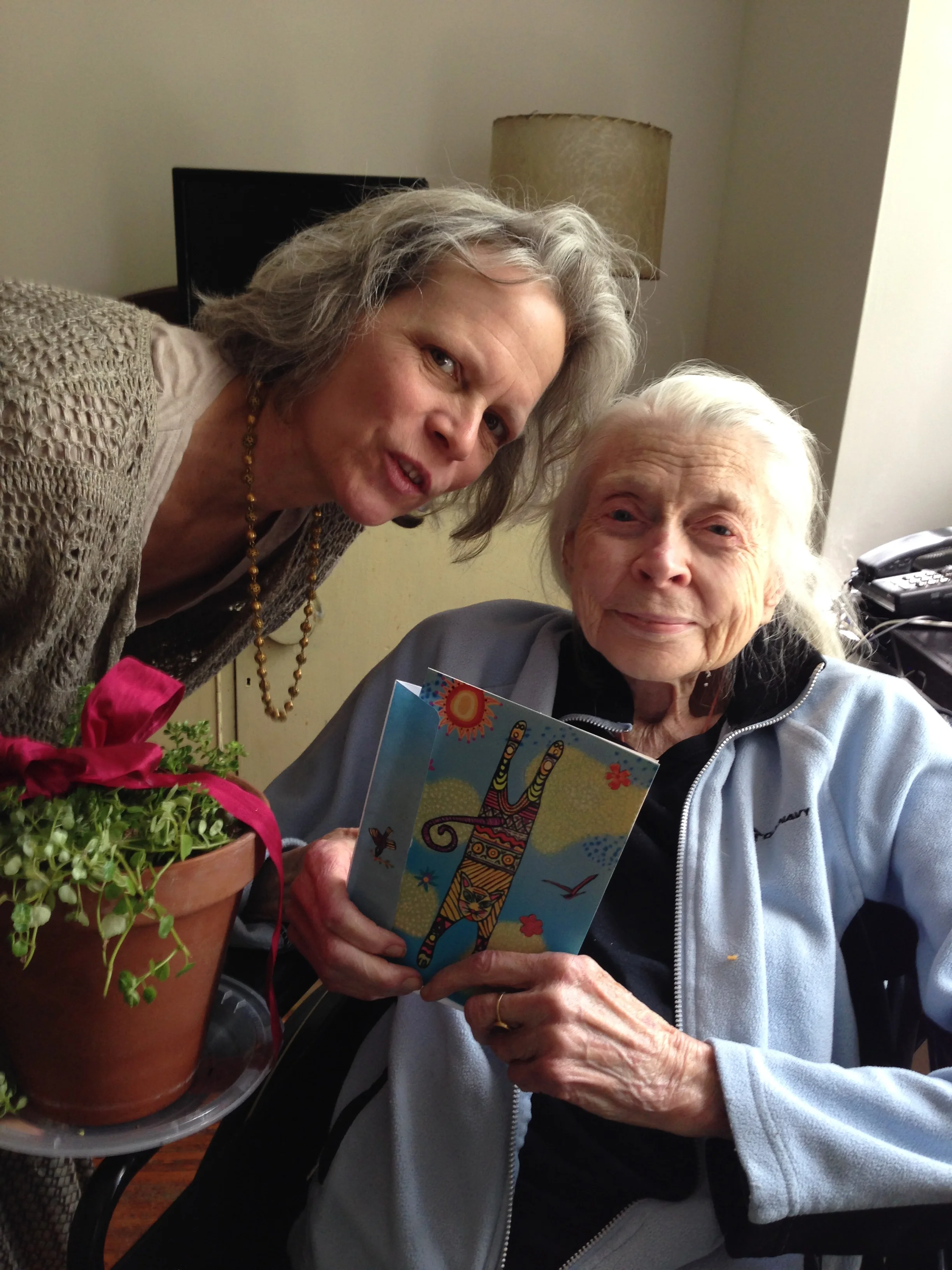Rose died today with all her marbles. Anyone who knew her can hear her say it with that hard-to-place European accent. "I've got all my marbles," as she pointed to her temple with a wink. Metaphoric marbles are a point of competitive pride with anyone over ninety, but hardly anyone who is 94 and six months gets so lucky as to die with all of them. Rose was in a coma or near coma for only the last 16 hours of her life, but that and morphine don't count for lost marbles because earlier this week she told me the date of her granddaughter's husband's annual colonoscopy as if she simply had to keep track of it for him. The day before today she told me her sweater was cashmere and gave me exacting instructions on how she washed and ironed it in order to keep it looking like new for the last 10 years.
I met Rose in 2009 when her primary care physician left the area and her pulmonologist referred her to me. At the first visit I was tested. She asked about why she needed to take medications if she didn't have the illness to go with them. She couldn't make sense of why one doctor prescribed a diuretic and another switched it to a different one without explanation.. She wanted to know how smart I was and to find out if I would attribute her concerns to "old age." She treated the first office visit like a first date and sized me up to see if we had longevity potential.
Rose wasn't going to be one of those people who leave the last choices of her life up to others. This was between her and me minute by minute. Besides reminding everyone that "when it’s your time, it’s your time," she carefully left her sons out of explicit acknowledgment of prognosis. She didn't ask me for prognosis either, but instead read my face for silent information, the same way I read hers for how much moral and mental energy she had left to get through the irreversible deterioration of her physical being. I can't recall ever seeing a body die day by day for weeks without losing any marbles despite worsening in the number of things that doctors measure. Rose and I had a secret language. I can't trace the origins of it, but it got us through at least four health crises with return to quality of life. What is a doctor if not a partner during life and near misses?
Rose died hours after a quick bed bath and change of night gown because all three of us who were there knew the morning routine. She died under her daughter-in-law's purple-turquoise hand knit cashmere throw. Before her sons arrived her companions giggled the secret story of Rose instructing them to practice Kegel exercises as her public service reminder to aging women everywhere. Practice makes perfect to prevent incontinence. The granola-baking granddaughter was there to repay mothering with a song of love. Another daughter-in-law physician accepted responsibility for titrating morphine to life without symptoms. I was with Rose almost every day in the last two weeks as her body deteriorated and despite the symptoms, eye to eye we both pointed our finger to our temple and said the word "marbles."




